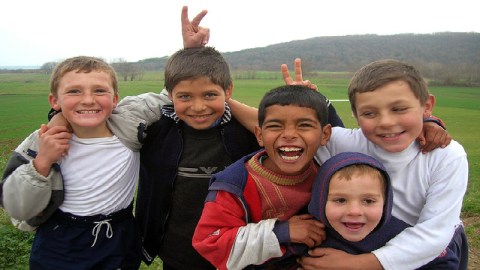A New Measure of Development: Well-being

What’s the best measure of progress in the global economy? Even economists aren’t satisfied with gross domestic product and incomes anymore. Now we also want to know how happy people are and how much they feel they can realize their potential. These are the right goals for economic policy, but pursuing them raises some difficult questions. How can we compare one person’s well-being to another’s? Can we put a dollar value on well-being, so we know how much to spend on it?
For the past couple of decades, people working in health care have been trying to answer these questions. Health care is costly, and getting the most bang for the buck means making tradeoffs between people’s well-being. Now, the same methodology is being applied to another field where funding is scarce: aid for global development. At the Overseas Development Institute in London, Claire Melamed and her colleagues are at the forefront of this exciting and essential new approach. They answered a few of my questions this week:
Econ201: Why is it important to measure people’s well-being rather than their life expectancies, incomes, etc?
ODI: This project is less about measuring well-being directly than about trying to understand how much different components of well-being (income, health, etc.) contribute to people’s own sense of how their lives are. So we are not proposing a move away from objective measures entirely, but are suggesting that as an input into policy and resource allocation decisions it would be useful to know more about how people value the different components of what is sometimes called ‘well-being’.
Econ201: Why do we need a measure of well-being that is standard across many groups of people?
ODI: Because policy decisions are made with reference to different groups – so that a decision to allocate resources for an intervention that affects one group will have an impact on the resources available to spend on other groups. A common measure would help people making these decisions to work out how overall needs differ between groups and what they are getting from their spend in different areas.
We are also trying to think about how different groups of people value different things. It would be perfectly possible that the result is that the instrument we end up with has to be modified for different country contexts for example. What we are proposing is a standard instrument to allocate resources but the weights that each component are assigned in the instrument could vary across groups of people. This also is the case in health; the EQ-5D for instance is evaluated in different countries and groups of people to obtain different sets of weights for each of the health dimensions.
Econ201: Health is a fairly specific area, so the questions you can ask to compute measures like quality-adjusted life years and the like are somewhat limited. Well-being is much broader, with many potential contributors. How will you constrain the methodology to make it manageable?
ODI: This was the subject of much discussion at a recent workshop with health economists and development experts to discuss this methodology. The health people felt that what they were trying to measure was also pretty broad, so in some ways the expansion was less than we had perhaps thought. The key thing to keep in mind is what is relevant for public policy interventions and what is measurable in a fairly consistent way. We could, as a first step, limit the dimensions of well-being to those which are likely to be the subject of policy or spending interventions – so, for example, religious belief, which we know is important to well-being, could be excluded. This will be one of the areas we explore in the pilot project.
Econ201: Why do you think ‘deprived’ people would have different contributors to well-being than wealthier people? Has income been shown to change the health metrics you’re using as models? Have other factors?
ODI: This is very much an open and debated question, and I am not at all sure that they would have systematically different preferences – again, this is a question for the pilot project. We are also very interested in finding out if poor people have preferences which are different to government officials or aid workers – which would be quite illuminating for thinking about the politics of aid and development interventions.
Econ201: To what degree are you looking into evaluation of well-being over time? In the aid community, should the relative values of well-being today and well-being in the future depend on the donor’s preferences or the beneficiaries’ preferences?
ODI: One of things this can help us explore is how much donor and beneficiary preferences differ and in what ways. A pilot project could only give us a snapshot, but if it is successful it would be interesting to keep updating the data to review any changes (as they do in the health sector).
Econ201: Could the tools that you are creating for global development eventually complement or replace existing metrics for evaluating social and economic policy?
ODI: Complement yes, I very much hope so! Replace – not entirely, as I think there is information that won’t be captured by this project which is still important.
You can follow Claire on Twitter at @clairemelamed to read about the progress of her project.
Image Credit: Atakan Sevgi/Flickr





